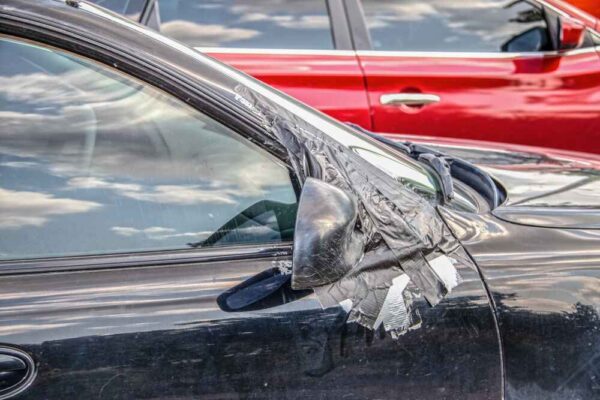How it works: Insurance Claim
Ever wonder what exactly happens during an insurance claim? Although you may never have had the experience, certainly other people you know must have been in an accident, or have something happen to their home. So what exactly do they have to do? Is there a pile of papers they need to sign? Do they need to argue for every single penny? Read on to find out!
The Accident
Obviously the first step in a claim is damage being done to something that is covered under an insurance policy. Generally claims involve physical damage (a cracked windshield, a hole in your roof, stolen property), but they can also involve awards made against you in court (why you need liability coverage) or costs you have to pay to recover from an injury or trauma, be it physical or mental.
The claim’s severity can be a broad spectrum. I’ve seen claims that span from the worst day in someone’s life (especially if bad injuries are involved), to being a laptop damaged by dog vomit (I’m still not sure how it happened). Emotions typically run hot as a claimant is either upset, annoyed, or in most cases, a deadly combination of both.
The Report
Let’s say you (knock on wood) got into a car accident with someone else. If it just happened, you are probably have alot of stuff to do, like trying to contain the damage to your vehicle, or contacting loved ones, or calling the police and getting information from the other driver. But don’t forgot your insurance broker! Having gone through many claims before, your broker can advise you on important details to get before starting the claims process (name of the other driver in an auto claim, police officer’s name and badge number etc), as they will be much harder to obtain after the accident has occurred.
You will also need to report the claim to your insurance company, as all policies actually have a limit for the time you can wait before reporting a claim – sometimes it can be less then a week. The report will require some basic information, what property was damaged, where it was damaged, how it was damaged, and the contact information of you and any other parties that are involved (this can be police, people involved in an accident, someone you want to be contacted etc).
Once you have provided this information, the broker will provide advice about the claim. Not all damage is worthy of a claim, because filing for one will eliminate your claims free discount and could increase your premium in the future. Additionally, not all damage is covered by your insurance policy, and coverage should be verified to prevent the nasty surprise of a claim being denied further down the line.
The Claim
Once the report has been submitted, you will be contacted (or be put in contact with) a claims adjustor. The adjustor’s job is to steward you through your claim, determine how much your insurance company is willing to pay, and examine the claim for complicating elements.
An adjustor can be employed by your insurance company, your insurance brokerage, or an independent third party. The employer should not have a noticeable effect on you, as the job and interests of the adjustor do not change. Their primary interest is settling the claim legally, while also providing genuine customer service and a quick claims process.
The relationship with your adjustor is not adversarial, he/she is not trying to deny your claim, rather the intent is to get as clear a picture as possible. This is why cooperating with your adjustor is extremely important, and although you may not be in a good mood discussing your claim, you should still show them the utmost respect. A little kindness can go a long way to making your claim go smoothly.
Of course, not all claims go as planned, and sometimes the adjustor really is being intrusive and unfair. Your best option is to talk to your broker. Your insurance broker isn’t included in the dialogue between you and your adjustor, so if you need help the onus is on you to get it. Although brokerages are not involved in claims by default, they typically try to help their customers as best possible, and can contact the adjustor and argue principles of insurance on your behalf. Your broker is there to provide a service, take advantage of it!
After the Claim
Your experience after the claim will be dramatically affected by your experience during it. If your claim gets denied wrongly or you are unsatisfied with your experience, you should move your insurance policy to a different insurance company, and possibly take legal action. The court system is very harsh on insurance companies who exploit clients, so if you feel the law is on your side, you should ensure that you are compensated.
However, if your experience has gone well, you will still communicate with the adjustor to co-ordinate repairs or new purchases. Occasionally you will get money from the insurance company to pay, although the insurance companies often pay for services directly. Your insurance company may claim whatever remains of the damaged property (if it is totally replaced) as salvage, and may ask for the keys to your old car if this is the case.
Please remember that a claim does not mean a brand new vehicle or house. If you were driving a 2004 Honda that was completely wrecked, don’t expect to be able to buy a 2013 model. You may just get a cheque for whatever the 2004 Honda was worth at the time, or the company may buy a comparable used vehicle. Insurance’s goal is to put you in the place you were in directly before the accident, not in a place you wish you were in.
You Might Want to Read
June 15, 2025
Sideswipe Collision: Who Is at Fault in Sideswipe Accidents?
June 15, 2025
Least Depreciating Cars in Canada
June 5, 2025
Welcome to the Team Keyes Insurance


